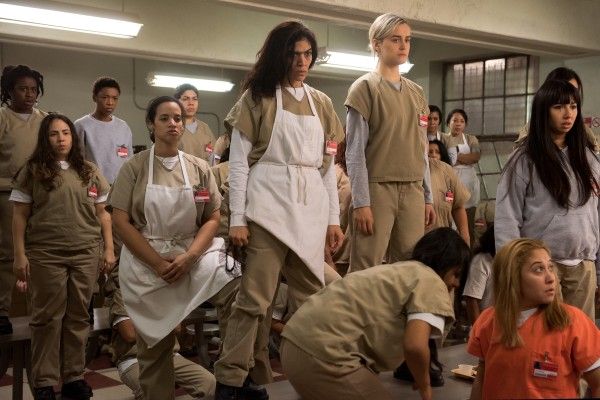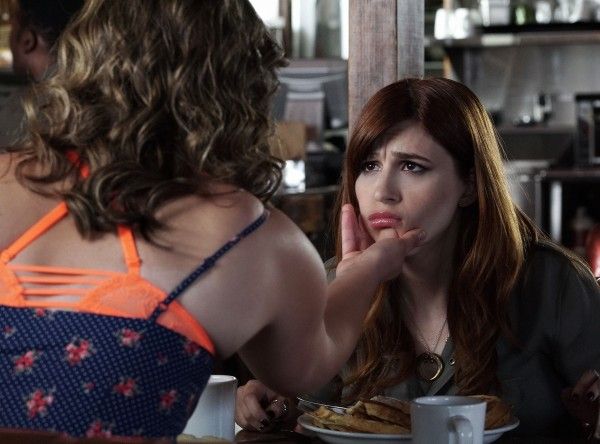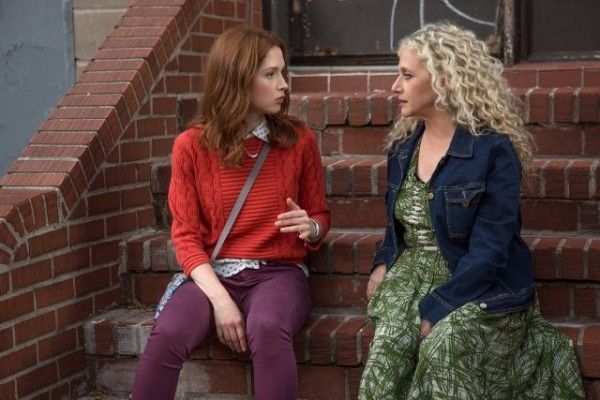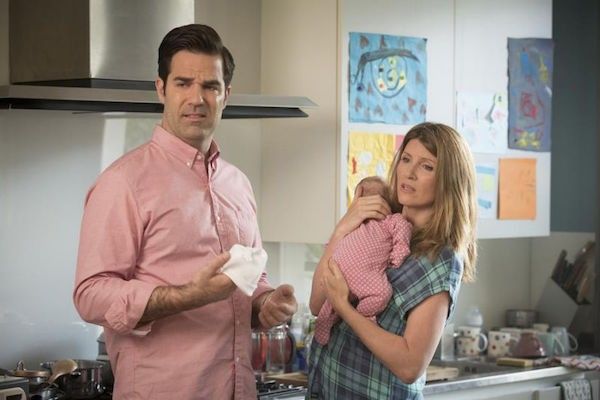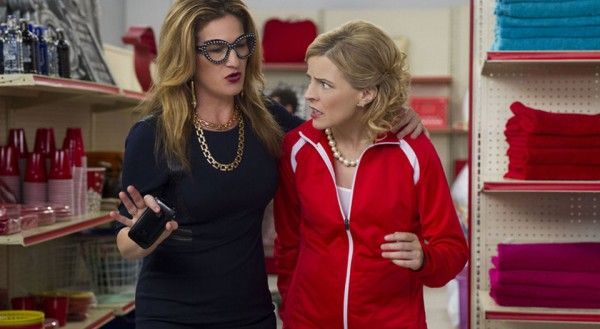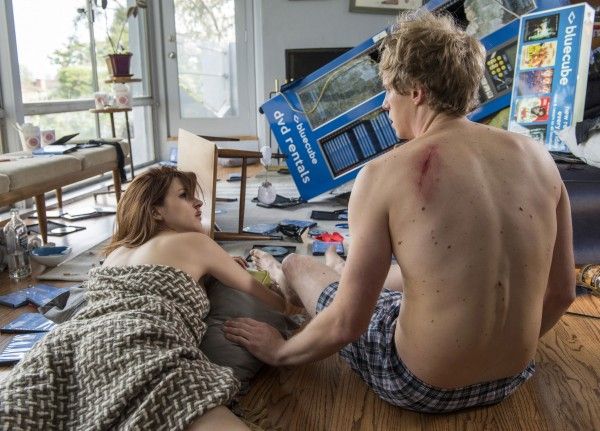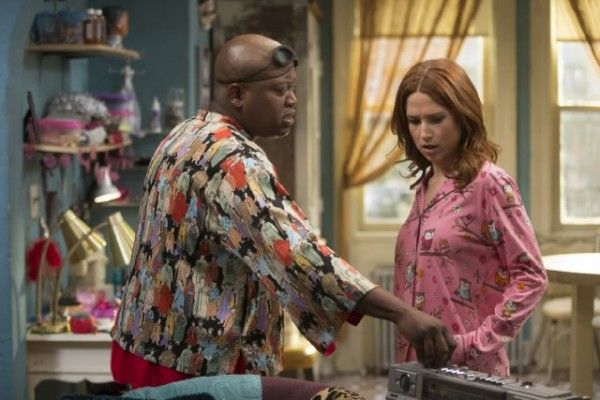The fact that television has gone through a major upheaval in the last few years is no secret: cable companies are panicking, streaming giants are only swelling as the years tick by, more and more of us (myself included) are watching television solely on laptops or through streaming services, TiVos are quickly headed to antique status – and that’s just been in the past five to ten years. To put that into perspective, Netflix didn’t even begin streaming until 2007, when comedies like 30 Rock and The Office were ruling primetime and Flight of the Conchords was carving out its own strange niche on HBO. The streaming giant didn’t release any original content until 2013, when Parks & Recreation and Modern Family were delivering what could be considered the best seasons of their run. Since then, we’ve seen the end of comedy institutions like How I Met Your Mother, along with the continued survival of ratings king The Big Bang Theory, but in that time, something far more interesting has been happening to comedies: they’re getting serious.
In the mainstream sense, traditional sitcoms like The Big Bang Theory and even Modern Family (a series that admittedly finds time for moments of drama and honesty) continue to dominate what’s left of the Nielsen ratings, and manage to pull in a healthy number of Emmy considerations in the process. But some of the best comedies of the last few years: including Master of None, Unbreakable Kimmy Schmidt, You’re the Worst, and even the boisterously cynical Catastrophe have been getting in touch with the more damaged centers of the comic mind.
Though not blatantly similar to any show listed above, Orange Is the New Black is perhaps the most culturally embedded example of this phenomenon, gaining a strong foothold in popular culture with its devotion to a unique brand of existential compassion (employed to great effect with its wrenching flashback structure), which has helped to differentiate it from other comedy-dramas like Gilmore Girls, Ugly Betty, and creator Jenji Kohan’s other comic series Weeds. Rather untraditionally, the jokes of Orange Is the New Black can feel like a medicinal uplift meant to round out its own sharp pangs of sadness rather than the point of the narrative itself, a feature that most likely caused its recategorization from “Comedy” to “Drama” at the Emmys after OINTB repeatedly underlined its willingness to (a la Degrassi) “go there” during its second season.
But it’s the third season that definitively confirmed the show to be the most serious comedies on air today – as Piper (Taylor Schilling), the once mush-mouthed, doe-eyed newbie evolved into a funhouse figure of cutthroat prison politics (or “Walter White Inc,” as her brother Cal proffers), cutting down her fellow inmates without so much as a shrug. And then there was “A Tittin’ and a Hairin,’” an episode that gave us both a background story for Taryn Manning’s Pennsatucky and a full evening of wracking sobs, as viewers were forced to watch a cycle of abuse double back on Doggett, one of the most beloved characters on the show. Lest we forget, there were some laughs, and some solid ones too: this was also the season that brought us Beckett dancing hard to Gwen Stefani’s “Hollaback Girl,” and Piper’s brother Cal overseeing a carefully concocted mixture of miso (for that “base note of umami”) and other kitchen ingredients to mimic the scent of well, you know. but with Season 4 on the horizon, there’s no doubt the series will be delivering even more debilitating blows of reality mixed in with its comic flavor.
Unsurprisingly, Orange Is the New Black, has become poster child for a new wave of dramedy television, a genre hybrid that has since dispensed with the needless half-hour/hour-long distinction that once to needlessly bifurcate otherwise similar series. Like Louie, Togetherness and Transparent, shows that also compete for awards under the “comedy” banner, this burgeoning genre is almost hard to recognize as a clear descendant from the traditions of sitcom, comfortably falling closer to the side of drama than laugh-a-minute comedy. But these series’ sensibilities have begun to influence the sitcom genre, leading even some of the lightest series to surprisingly dark depths.
To date, it’s very possible that no series has mined those depths better than You’re the Worst, a show that could have once been mistaken for any other effervescent comic concoction, distinguishable only by its unmistakable ripple of sour grapes. That was, until its surprising second season switch-up that saw Gretchen (the criminally underrated Aya Cash), a character previously defined by her sweeping flippancy, break down in tears in the Season 2 episode “There is Not Currently a Problem.” As she’s forced to admit to her boyfriend Jimmy (Chris Geere) that her “brain is broken.” She explains simply that she’s got clinical depression, an issue she’s working on fixing herself, and is adamant to remind him that he can’t fix her. And while that simple approach to mental health might seem obvious to some, this admission of depression as something unfixable (at least externally, by a loved one) and ultimately livable felt not only incredibly salient but vaguely revolutionary, especially when you consider that the following episodes of the season find Jimmy (of course) attempting to fix her – and when that fails, cheat on her – forever changing the DNA of the show in a way the creators may never reverse.
“LCD Soundsystem,” a bottle episode that involves Gretchen and Jimmy getting close with an aspirationally “cool couple” is uniquely devastating, as it becomes obvious the two are just as unhappy as any overworked suburban pairing. At the very end of the episode, Gretchen cries silently, with Jimmy none the wiser at her side, before the credits roll. It’s a shocking end of an episode for a series that once gleaned so much joy from gags about coke and weird sex, but it’s also one that feels inevitable, You’re the Worst had been touching on issues of PTSD and substance abuse since its first few episodes, but in its second season, found its touching core in drama rather than comedy.
Like You’re the Worst, it’s only in retrospect that one can find the invisible Sword of Damocles (or, Sword of PTSD) hanging above Unbreakable Kimmy Schmidt’s head. The premise itself is so darkly wrought that it’s nearly incompatible with the show’s technicolor tone – Ellie Kemper’s titular Kimmy attempts to naively navigate the streets of New York after being trapped in a bunker by a cult leader named Reverend Richard Wayne Gary Wayne (Jon Hamm, a joy) for nearly all of her young life. Season 1 was fueled by wild-eyed wonder and a lot of denial on Kimmy’s part, which led me to assume the darker details of her past would be written off as an afterthought. After all, sentimentality was never really 30 Rock’s thing.
But surprisingly, Season 2 is almost exclusively fueled by Kimmy’s bubbling anger, revealing a strong sense of the PTSD our central character must be living with just underneath her pastel-colored coating. Manifesting her unresolved trauma through Robert Durst-esque stress burps and highly revealing sessions with her alcoholic therapist (Tina Fey), Season 2 finds Kimmy trying to desperately run from the trauma that has, despite her protestations, affected her so deeply. In another show, this confrontation of her past might seem inevitable, but it’s her ceaseless sunniness that makes Kimmy reflexively beaning Dong (Ki Hong Lee) on the head during their would-be rendevouz in “Kimmy Goes to a Hotel!” so unrelentingly dark. The end of the season gives Kimmy a small resolution regarding her mother, even if it’s a victory that’s marked largely by how much further she has to go. But the finale’s cathartic moment functions twofold: both allowing Kimmy to skip off to Season 3 without a bad taste in her mouth, and representing Kimmy’s first step towards recovery – an accomplishment won step by Keds-footed step.
Similarly, on an evaluative step back, I suppose it was inevitable that Aziz Ansari’s Netflix series Master of None would be tinged in sadness. Conceived of originally by Ansari and his writing partner Harris Wittels before he passed away due to an overdose, the series could never have been as charmingly light as Ansari’s famous Tom Haverford character. But perhaps no one knew how insightful Master of None would turn out to be, eschewing the framework of lesson-based narratives (think Full House) in favor of thoughtfully crafted observational comedy pieces surrounding issues like first-generation parents (“Parents”), racial insensitivity (“Indians on TV”), and feminism (“Ladies in Gentleman”). And though it’s fair to say Master of None wins no awards for subtlety, there’s something to be said for a comedy that handles serious issues with abandon, rather than veiled commitment. (It’s also very, very funny. What else could you expect with Ansari?)
Even Catastrophe, a joyously misanthropic UK import, has found a somber side in light of Season 2. Tumbling towards the future after familiar surprise pregnancy plot of Season 1 (think Knocked Up, but more doggedly jaded), Season 2 finds Sharon and Rob (played by Sharon Horgan and Twitter personality Rob Delaney) forced to transition from shyly flirtatious lovers to adults left with the often uncomfortable reality of their decisions. Transforming traditional sitcom incarnations of the “tired housewife” and the “workaholic” into sometimes all-too real figures of modern life by tackling topics like infidelity, postpartum depression and alcoholism, Catastrophe managed a Season 2 theme of fallibility that’s as charming as it is depressing. Allowing for moments of happiness and comedy to puncture the stress balloon of everyday life (rather than the other way around), Catastrophe has, perhaps inadvertently, transformed into a deeply empathetic series despite its sharp-toothed exterior.
In light of Netflix’s willingness to “go dark,” when it came time for comic weirdling Maria Bamford to deliver a series purportedly based on her life, I braced myself for a madcap, female-led bent on the confessional comic show like Louie or Maron. Instead, Lady Dynamite proved to be a daring deconstruction of a life with mental illness, stitched together according to the crests and swells of Bamford’s own bipolar disorder. Contrasting her over-stressed past with the time she spent in recovery at home in Duluth, Minnesota and her current professional life, Bamford is able to weave together a series that feels very much like a surrealist, cultural manifestation of her mental illness – at once wonderful and absurd, kind of like a pug singing a musical number. (See “Enter the Super Grisham,” you won’t be disappointed.) The jokes are intense, and operate on a frequency that feels higher than a dog whistle, but like Bamford’s stand-up, there’s subversive sublimity to be found in the frenzy.
There are countless other comedies on air now that fit the “somber slapstick” bill. There’s depression on BoJack Horseman, sexual assault and sexism on Inside Amy Schumer, personal demons on Maron and Flaked, grief on The Last Man on Earth, and outside of most network mainstream of comedies, you’d be hard-pressed to find a show that doesn’t touch on some painfully real aspect of everyday life. (And yet there are some, like Netflix’s aggressively terrible The Ranch).
It’s not enough to be funny anymore: you’ve got to be responsible, too. It’s hard to say exactly why, though this slow slide towards the darker end of the spectrum is as present in dramatic television and film as well. It could be the proliferation of choice, and the newfound ability of showrunners to cater to niche audiences, or it could be our increased cultural willingness -- or even a demand -- to speak about race, gender and mental health. But it is clear that we now find ourselves with more nuanced and accountable comedies than ever before, shows that aren’t afraid to ask crucial questions before delivering a punchline or hold themselves culpable for the gross stereotypes and broad flippancy that can seem almost embedded in the genre. Whatever is happening, it’s working for the good: we’re getting television that is spawning real conversations (and controversy) about everyday issues that’s also kind of a blast to watch.


